How the "Squid Game" showed the world the true face of capitalism
Yes, yes, yes we've all just started to move on from the worldwide hit The "Squid Game", but that doesn't make the phenomenon of its popularity any less interesting. Today, we want to reflect on exactly why The "Squid Game" has become Netflix's most popular series.

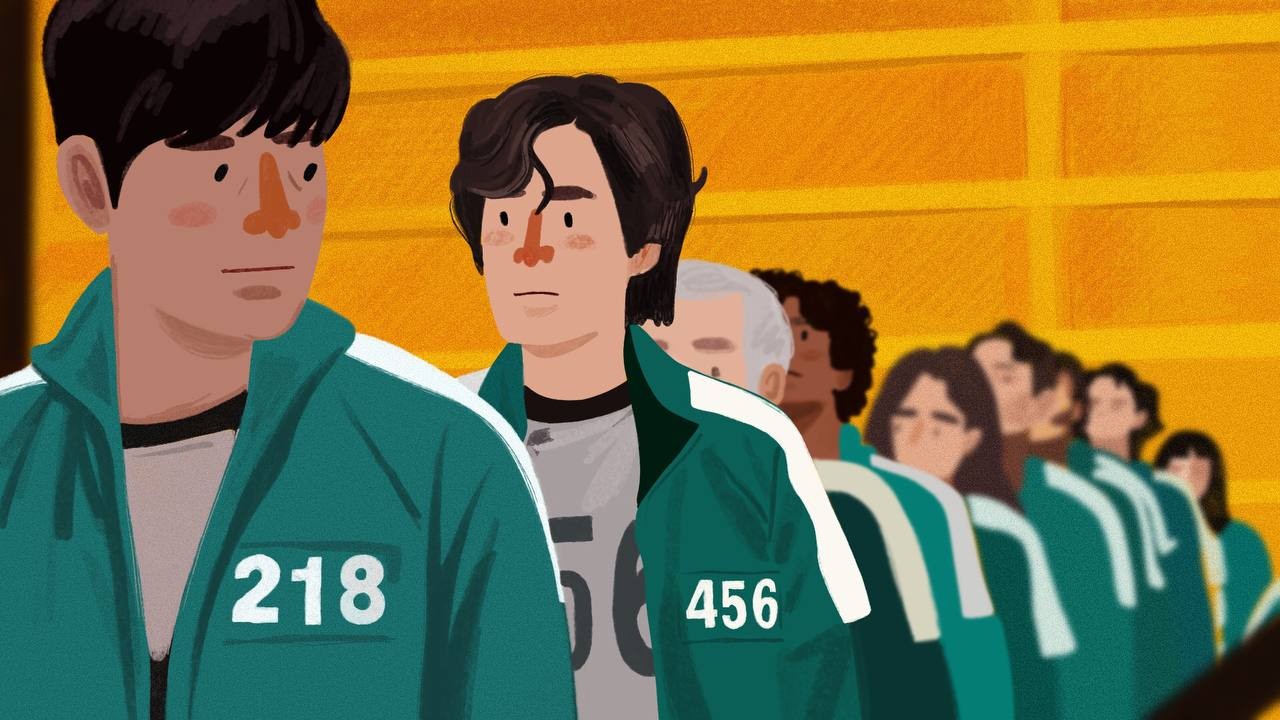
Yes, yes, yes we've all just started to move on from the worldwide hit the "Squid Game", but that doesn't make the phenomenon of its popularity any less interesting. Today, we want to reflect on exactly why the "Squid Game" has become Netflix's most popular series.
The "Battle Royale" phenomenon
Here we want to start from afar. The director and writer of the series, Hwang Dong-hyeok, noticed 10 years ago that the concept of survival in death games was very popular among manga and anime, so he started working on his film script. He finished writing the "Squid Game" in 2009 and originally it was supposed to be a film. But Hwang Dong-hyeok never got around to making the next film, because no studio dared to finance it which was so violent and incomprehensible to the public.
But now that this series has seen the light of day, something has changed. It's now very easy to think of popular works that use the concept of Battle Royale: "The Hunger Games", "Escape from New York", "The Running Man", etc. Then of course there is the gaming industry, where Fortnite popularised Battle Royale and made it a mainstream genre for many years. All of this has literally sewn the phenomenon into pop culture, so now, in 2021, it's more relevant than ever to fund works like the "Squid Game".
In general, Battle Royale is a near-perfect concept to critique a capitalist society where people are forced to fight each other for survival. It is the social injustice, the class hierarchy, where the rich only get richer and the poor get poorer, that makes people go into the game blindly hoping for luck. While for some the game is an opportunity to achieve a better life, for others it is a reality show. In the series, the creators of the game are willing to go to any lengths to get the viewer's attention, to get the ratings. that is why the violence is so escalated in the "Squid Game", and the vivid and fantastic scenery contrasts sharply with the grey reality so that the viewer does not think it is real.
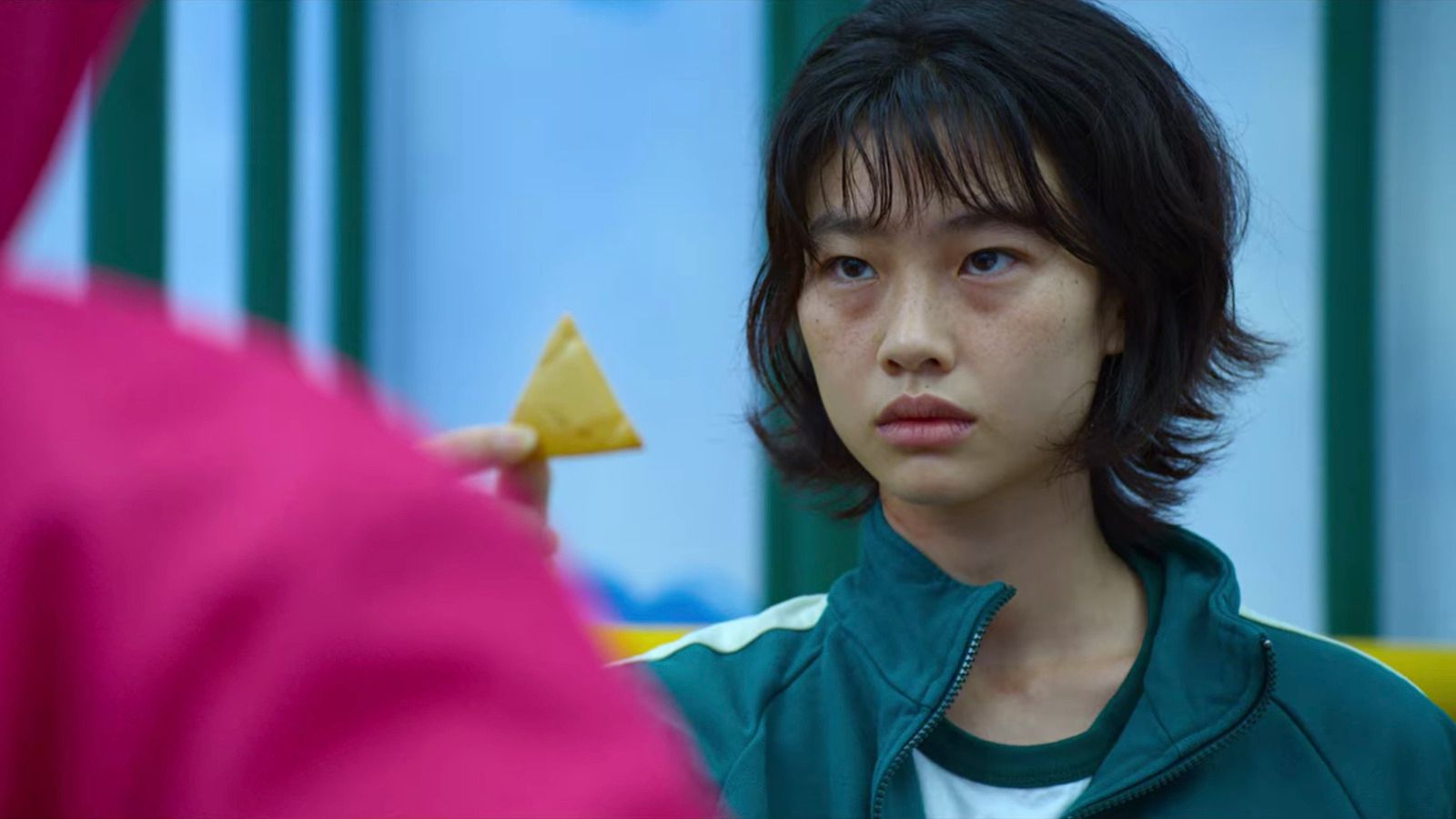
And the game is overseen by a mysterious figure who sees everything. This is that image of the nefarious capitalist system in the body of man. He owns the fates of all the players, he decides who gets to die and when.
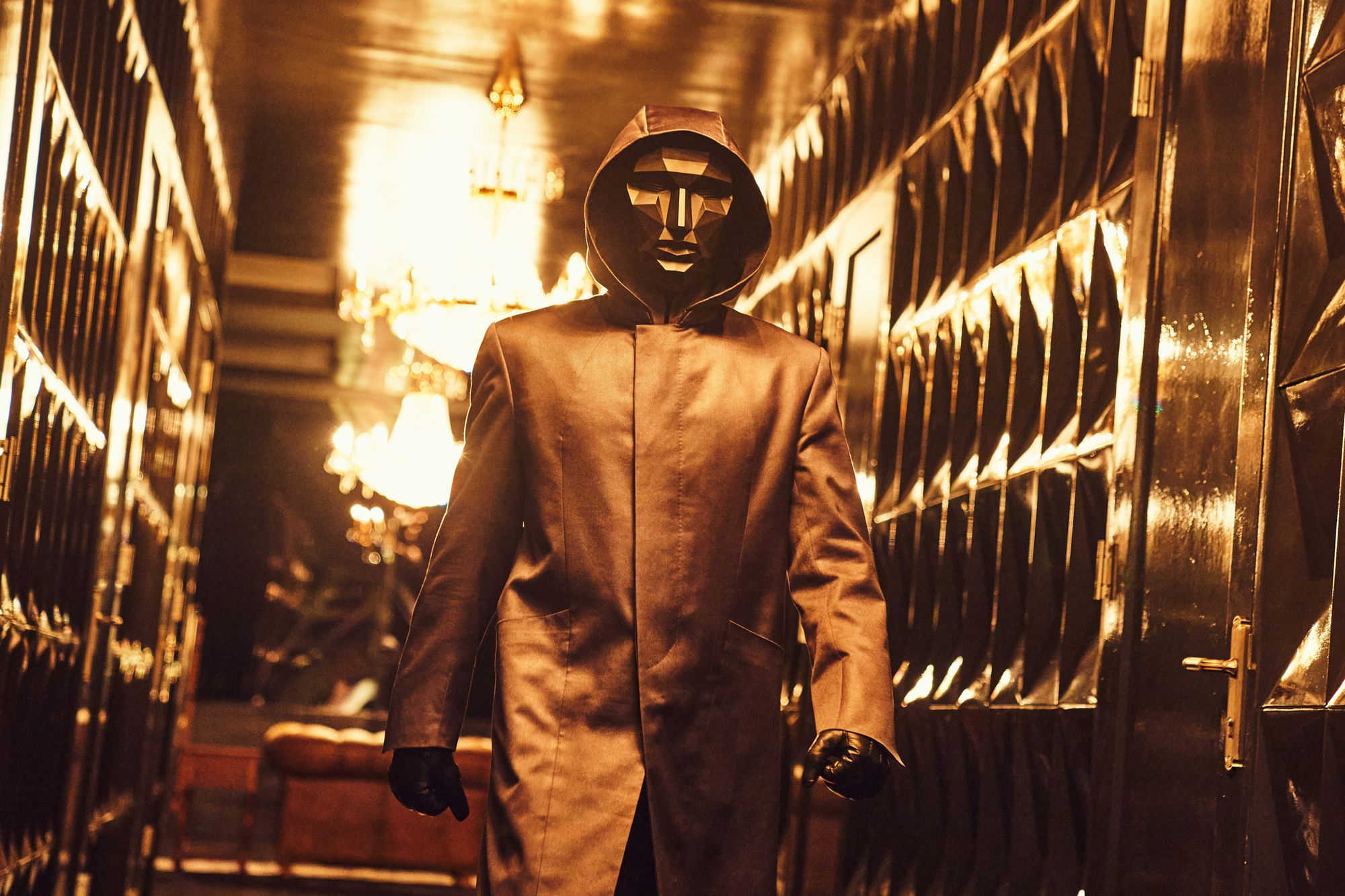
The series is a very vivid and brutal satire on consumer society and the entertainment industry. That's why it can come across as trashy or deliberately violent at many points - all done on purpose to show the absurdity and paradox of modernity.
Visual trademarks of the "Squid Game"
The whole "reality show" in the series comes with the theme of total control. And it's not just the contestants who are under constant camera surveillance, but also the overseers themselves. so the main visual device is a soulless, robotic camera. What is it? In general, David Fincher is the acknowledged master of this technique: he shoots his films in such a way that the viewer can't associate himself with the camera's gaze in any way. Fincher constructs an image of camerawork which leaves the viewer with the impression that the characters are being watched by a soulless, robotic device. This technique completely eliminates the use of a hand-held, shaky camera - on the contrary, it's clearly defined movement, with no human presence behind the camera.
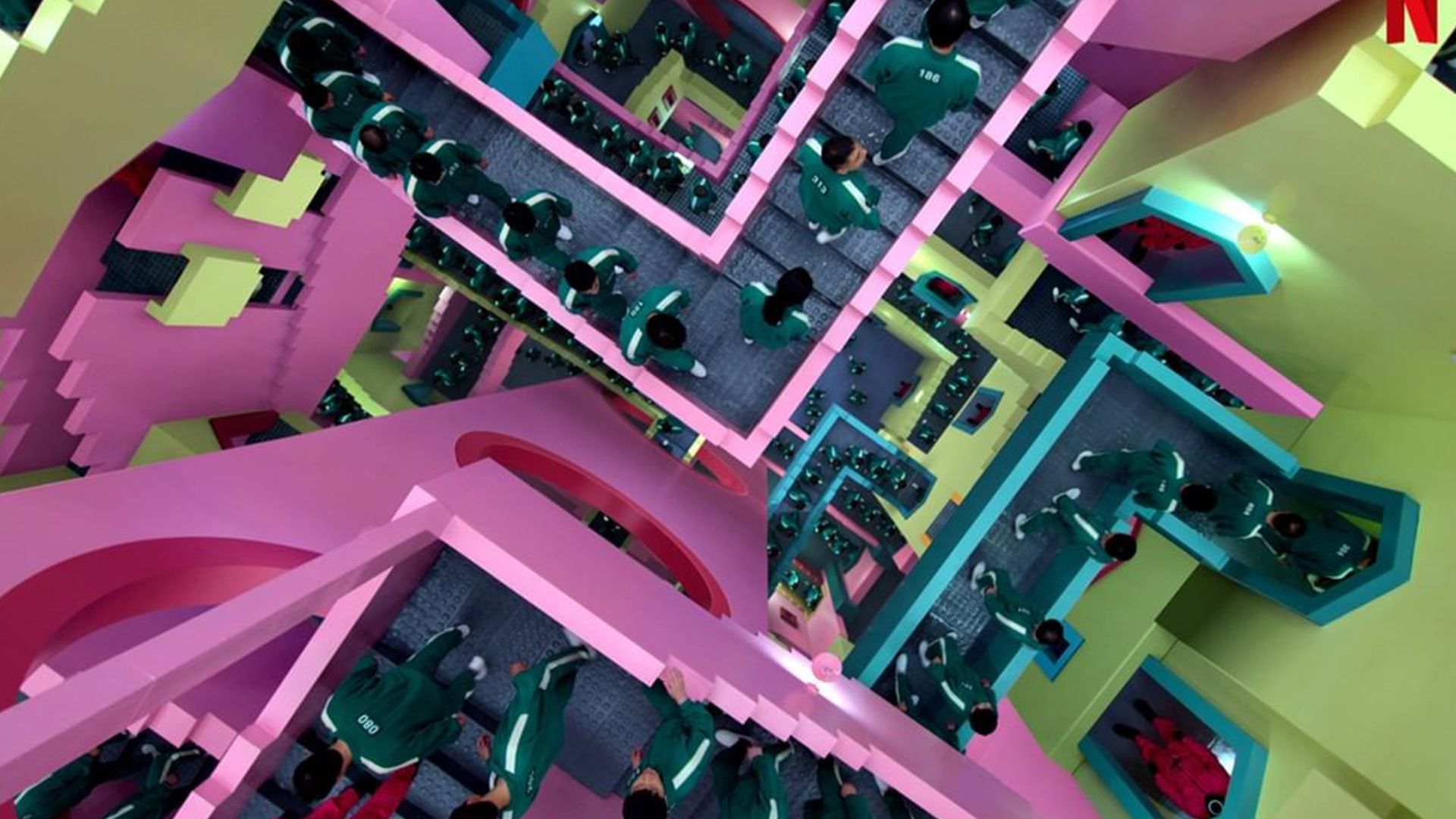
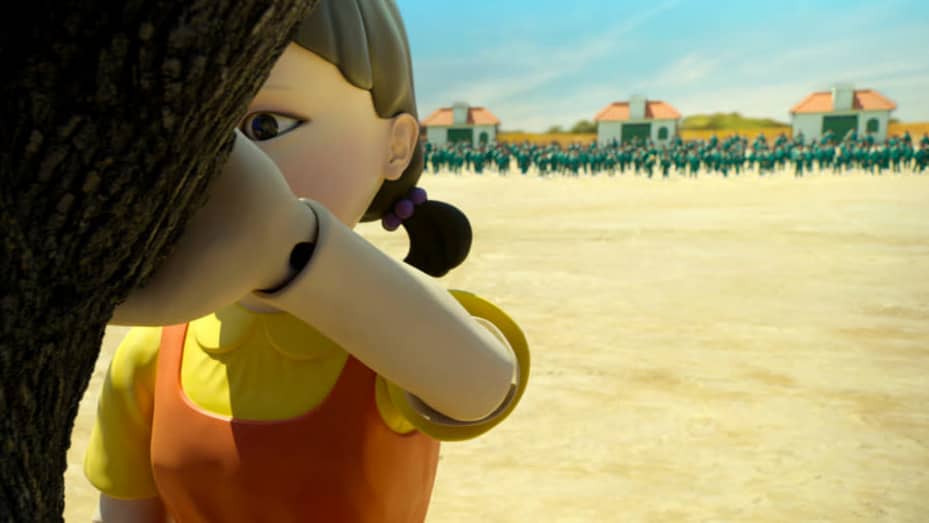
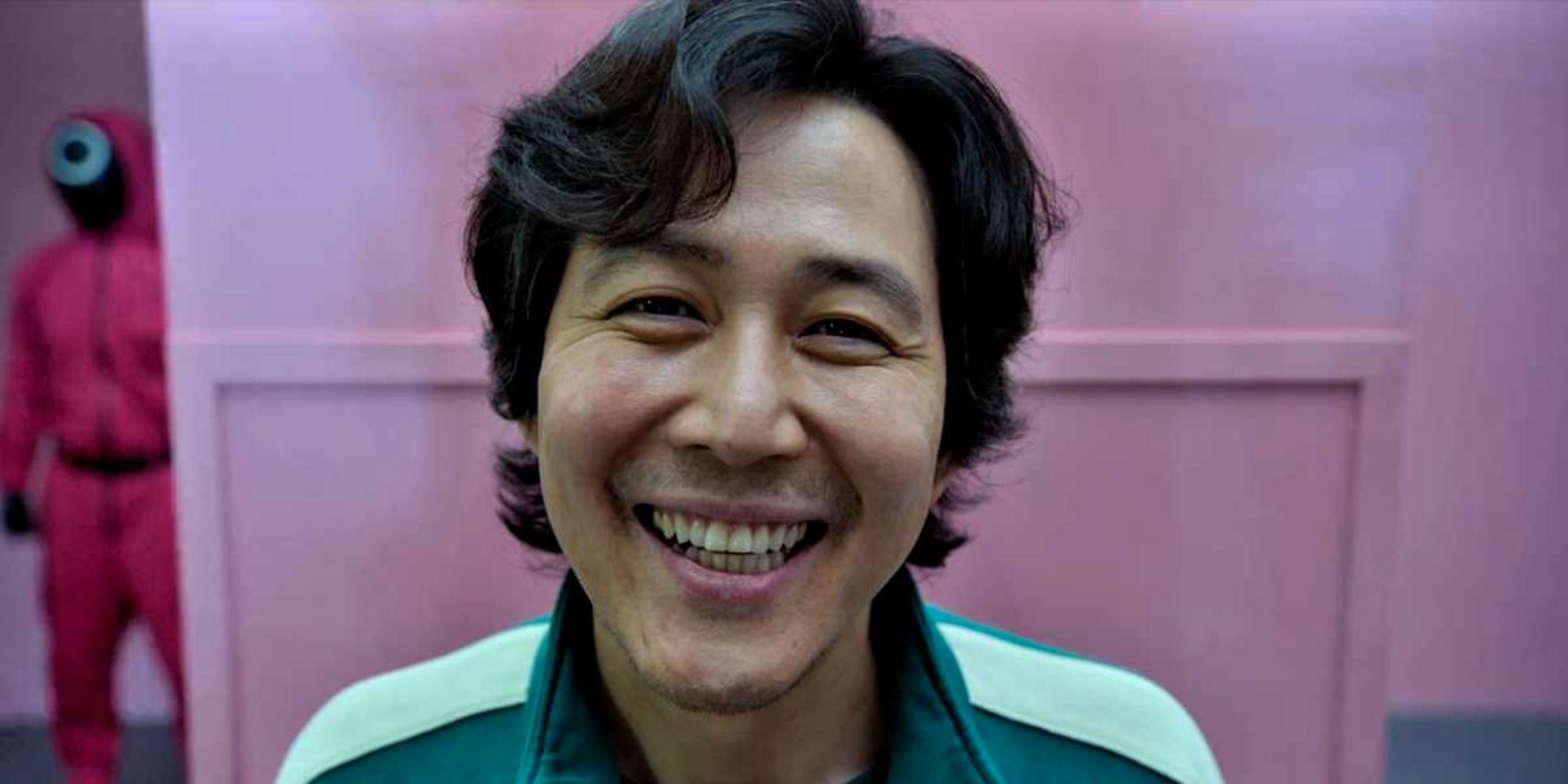
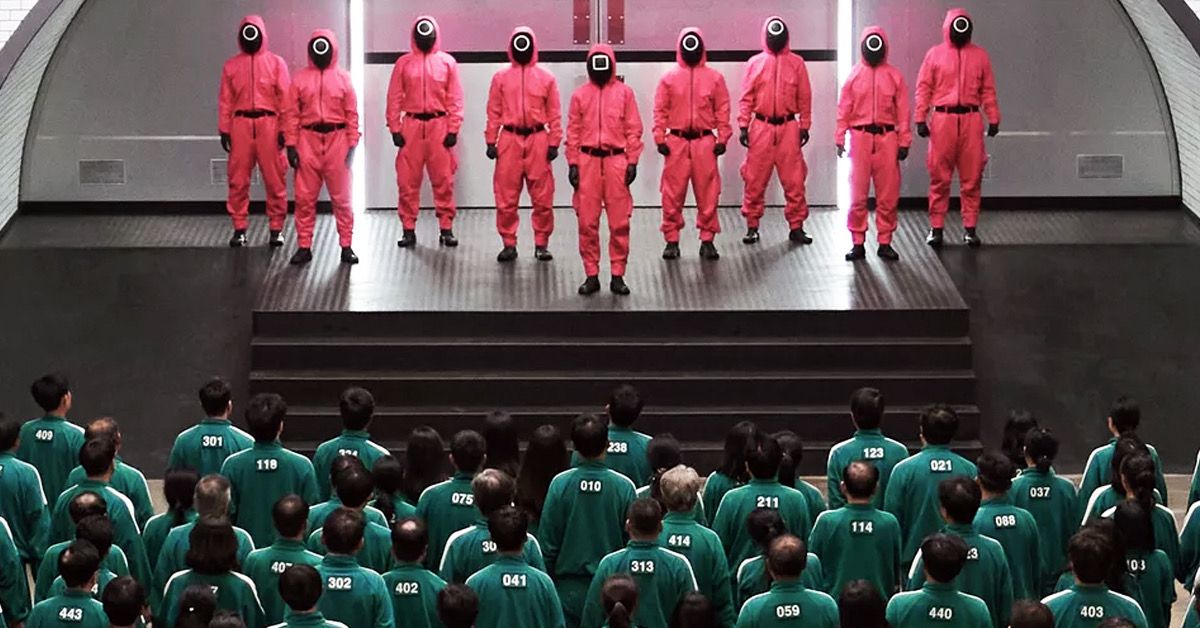
So, the "Squid Game" uses this technique a lot when a Battle Royal is shown on screen. In many ways, it is the camerawork that accounts for this psychological effect on the viewer, because we, as viewers, know that the characters are under constant scrutiny. This is how the suspense emerges. The style of the "Squid Game": smooth, artificial camera movements and unusual angles that symbolise ''big brother''. This visual narrative puts the viewer in the privileged position of that very rich viewer from the series. All we have to do is contemplate the violence.
However, the series doesn't stop there: in the most key subplots, such as when the characters are trying to escape or during the game, or when the characters' confusion needs to be shown. It is in these moments that the camera becomes subjective and we have the opportunity to become participants in what is happening.
Another important element of visual style is storytelling through colour. An excellent example is the contrasting reality and space of this royal battle. Reality is shown in shades of blue and grey, which tells us more about the world at once than any dialogue. It is immediately clear to us that reality is not prosperous, so people run to the game in the hope of a better life. And the battle royale itself is implemented in the best tradition of TV shows: everything is flashy, bright and very colourful, which looks very artificial.
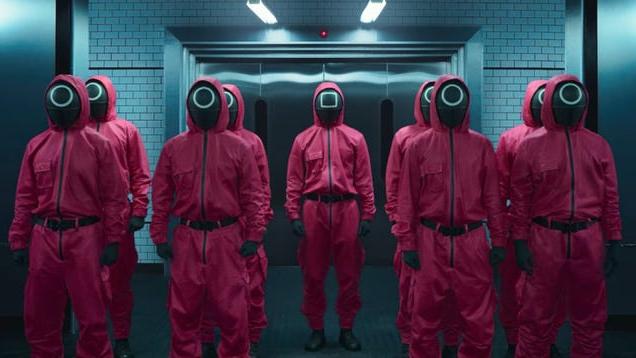
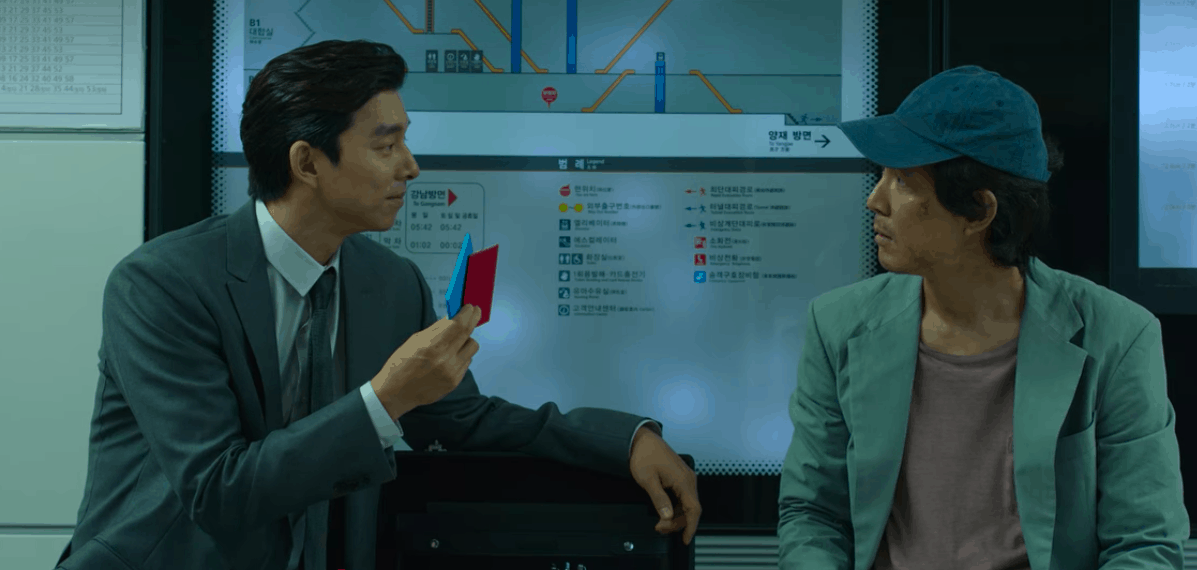
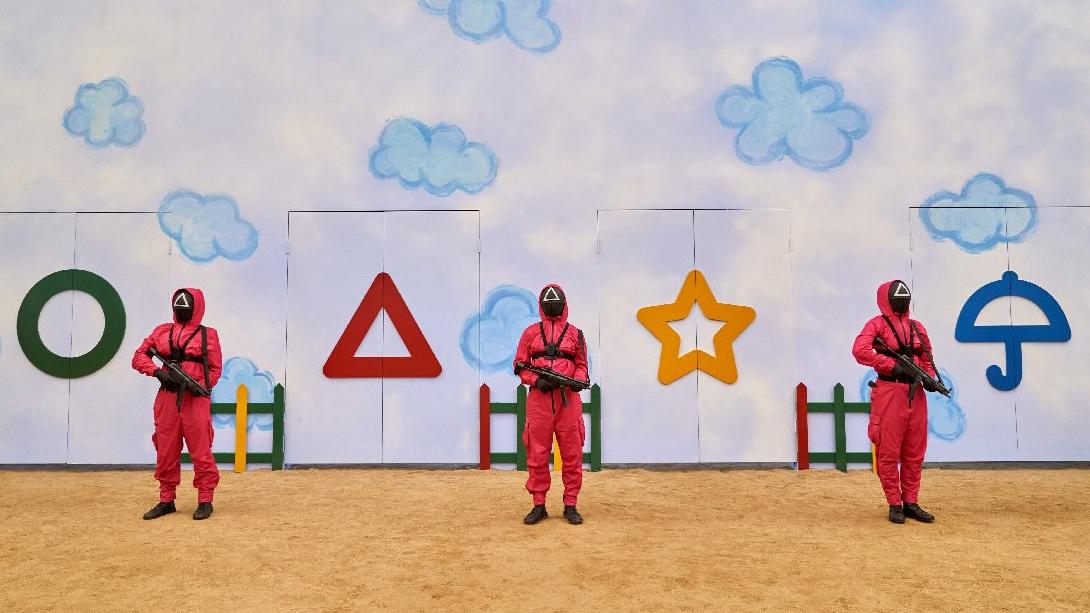
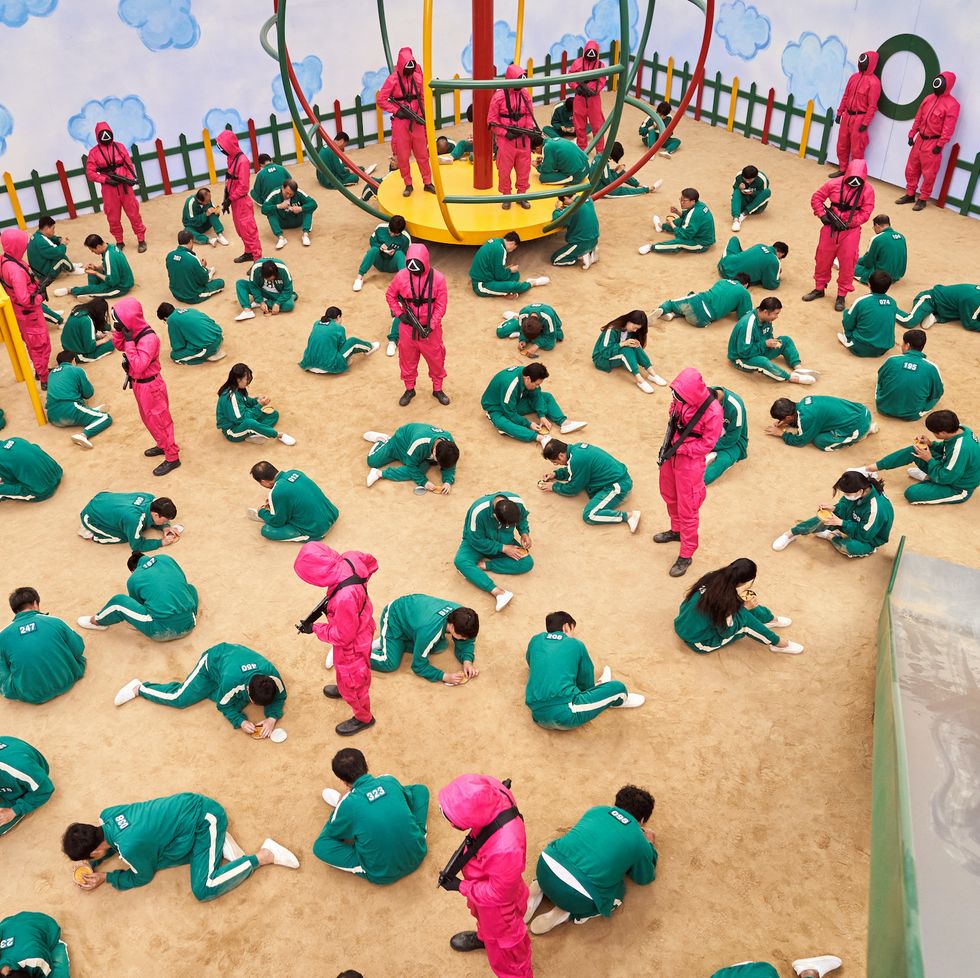
Was all this cruelty necessary?
There is an opinion that "Squid Game" aestheticises violence and generally shows violence because the viewer needs it. About the former, we cannot agree, as multiple forms of violence are used so often to enhance the quiet dramatic moments by contrast. In this way, the director shows that even in the most gruesome and inhumane conditions a person remains human. So one can conclude that the violence in the series is deliberately escalated - and it certainly is. The uncompromising world of the series is often accompanied by classical music or even jazz to create even more contrast and portray the violence as more violent.
It is true that the viewer likes violence. Our fascination with violence goes deep into history and culture, and the "Squid Game" makes excellent use of this as a meta-irony on us, the audience. The series gives us the violence and spectacle we so subconsciously want, but it also criticises our consumer society, the spectacle society, where the main thing is to get the spectacle.

That's why we think the "Squid Game" is the flagship series of 2021. So far. It combines a theme of social inequality, bold dramaturgical moves, inventive visual techniques, and uncompromising brutality. All of this, in one way or another, is characteristic of Korean cinema and sets "Squid Game" apart.
We love movies here. We're talking about cinema here. Here we promote the love of art and try to inspire you to take your camera and make a short film. Leave the boring pre-production routine to the Filmustage - automatic script breakdown - and focus on your creativity!
After a long time of hard work we are happy to announce the beta-testing of the new scheduling feature in the Filmustage software. Be one of the first to test the new functionality - click here for more detailed information.
Take care of yourself and see ya next week!
From Breakdown to Budget in Clicks
Save time, cut costs, and let Filmustage’s AI handle the heavy lifting — all in a single day.